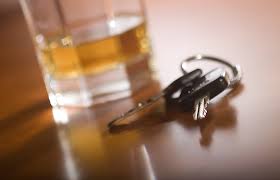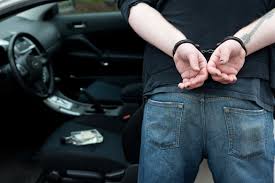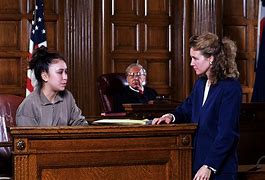Dui Law – Important Information About Duis Everyone Should Know
If you’ve been charged with driving under the influence (DUI) or driving while intoxicated (DWI), it is absolutely essential that you do everything within your power to defend yourself against the charges. The Pennsylvania legislature has taken a tough stance on drunk driving, so whether your conviction was based on having alcohol in your system or for being impaired due to drugs, the penalties that you face can be quite severe. The experienced DUI law attorneys at Erik B. Jensen Attorneys at Law will provide you with aggressive legal representation designed to get the charges against you dismissed or reduced.
You can be charged with driving under the influence if the police believe that you are impaired. Though most people think that strictly refers to alcohol, it can also refer to drugs. It can also refer to alcohol at a lower level than what is considered legally drunk, though in most cases there is a specific standard that of the percentage of alcohol in your blood that is used as a benchmark. This is referred to as you Blood Alcohol Content (BAC), and in Philadelphia the BAC that marks you as legally drunk as 0.08. In order to determine your BAC, the police will ask you to take a breathalyzer test, and that test is supposed to be administered within two hours of your arrest. Though you can refuse to take this test, doing so will result in your driver’s license being suspended immediately.
There is a sliding scale of penalties for DUI charges in Philadelphia, and it is largely based upon your BAC levels. A first time offer with a blood alcohol content of .08 to .99 will face the possibility of a $300 fine, enrollment in an alcohol education program, and up to six months of probation, with repeat offenders facing stiffer charges that may include a one year suspension of their license, higher fines, jail time and the installation of an ignition interlock device on their vehicle. Those who are found to have blood alcohol contents that are higher than .99 also face stiffer fines, and may face license suspension of up to a year. Depending upon the severity of the offense, the driver’s license can be taken for as long as 18 months, jail time can extend to five years, and fines may go as high as $10,000. In all cases the penalty may also include attending a court-ordered treatment program.

Do I Need a Lawyer for a DWI Case?
When you face criminal charges, you always have the right to an attorney. In fact, this is one of the rights that police will inform you of when they read your Miranda warning after your arrest. The reason you have the right to a lawyer is because the U.S. court system has many complicated legal requirements. To get a fair trial, you need someone who understands how the criminal justice system works and who understands the steps that you need to take to protect your constitutional rights and to defend yourself.
For example, if your Fourth Amendment rights are violated and you were searched illegally, you will need to file a pre-trial motion with the court arguing that evidence should be suppressed. Understanding exactly how to write a motion, support your argument with legal precedent and convince the judge to keep the evidence out of court requires an understanding of past case law and of civil procedure rules within the court system. If you don’t have this knowledge, illegally obtained evidence could be used to take your freedom and leave you with a criminal conviction.
Can You Represent Yourself in a Drunk Driving Trial?
Although you have the right to an attorney, you don’t have to exercise this right and you can defend yourself. This is called pro se representation. You will need to study the laws applicable to drunk driving cases and will need to make informed choices at every step of the way. Some of the different things you need to be prepared to do if you plan to represent yourself include:
- Entering an appropriate plea at arraignment: Should you plead guilty or not guilty? The answer depends upon the strength of the evidence against you. Even if you ARE guilty, you won’t necessarily be found guilty if the prosecutor cannot prove the case against you. If you do decide to plead guilty, it is advantageous to negotiate a plea bargain with the prosecutor to perhaps minimize the penalties or reduce the charges you face.
- The pretrial process: It is during this time that you must submit motions to the court on issues that need to be decided before your case goes to a jury. Do you believe evidence was illegally obtained? Do you think the prosecutor has insufficient evidence and that the charges should be dropped? You will need to convince the court of this by making sound legal arguments.
- Preparing for trial: If you plead not guilty, you need to investigate the evidence against you and try to build a case. You may need to depose witnesses, and to review the breathalyzer or blood test evidence. Both breathalyzers and even blood tests can be called into question in some cases to undermine the strength of a prosecutor’s evidence.
- Presenting your case: You can raise affirmative defenses or you can simply try to call into question the prosecutor’s evidence. You will need to think carefully about what witnesses to call. Are there experts who can testify about problems with the evidence? Are you prepared to cross examine the police officer to try to weaken his testimony? Remember, the prosecutor has to prove your guilt beyond a reasonable doubt. Can you introduce questions about your guilt into the mind of the jury?

What Are The Biggest Misconceptions People Have When They First Come To See A Lawyer About Their Dui Case?
The first thing people say is usually, “Well, they never gave me my rights.” That is mostly from watching television. People have the idea that if they do not give you your rights, then they cannot charge you or bring you to trial. However, in a DUI case, unfortunately, that is not the situation. They may never give you your rights in a DUI case. The Supreme Court has held all the questions that the officers ask like “How much you had to drink?”, “Where you’re coming from?”, “What were you drinking?” etc.
For some reason, the Supreme Court has held that those are non-incriminating questions and therefore, you are not given your rights or that you are technically not in custody at that point. So you do not have to be given your rights and the cops never do. However, there is a disagreement to that interpretation of the Miranda rule but that is the way it is. That is the first misconception that, “Well, because I wasn’t given my rights, there has got to be something we can do about the case and get it dismissed,” but that is not the case.
The other misconception is that the chemical test result, or blood and breath tests, is the end-all of the case. However, that is not correct at all. In fact, there are so many problems with the blood test with the way it is administered in California and the way the blood is analyzed in California. It is recommended with these DUIs, that if you are ever stopped, not to take a breath test. Only take the blood test for a couple of reasons. Those are the two basic misconceptions.

Avoid Making Incriminating Statements
If a police officer stopped you for a DUI, then you were probably exhibiting the type of behaviour that led them to believe that you might be intoxicated. You should not make their job— and the job of the prosecutor— any easier by admitting as such. An admission of guilt is a powerful statement that can make your case far more difficult to resolve in your favor. Even if there is evidence against you, an incriminating statement can hurt you just as much. So avoid saying how much alcohol or narcotic substances you consumed or admit that you are intoxicated, otherwise your case could become a whole lot more difficult.
Refuse To Do The Tests
One of the standard procedures during a DUI stop is that the suspected driver takes a series of tests to determine whether they are intoxicated. Those tests include the breathalyzer test that measures the driver’s BAC (Blood Alcohol Content) and the field sobriety tests that check the driver’s coordination. However, you can choose to refuse both of these tests as they are entirely voluntary even though the officer may imply that they are mandatory.
The worst case scenario of refusing the field sobriety tests is that you could get arrested if the officer believes that they have enough evidence to prove your guilt. This is bad but it is better than a DUI charge, and refusing the tests means that the officer won’t have any real evidence against you, which could help your case. The refusal of a breathalyzer test is a riskier affair because of implied consent laws that require you to submit to a breathalyzer test as a condition of obtaining your driver’s licence. That means refusing the breath test could lead to revocation of your driver’s licence and an increase in your insurance.
Your best bet when asked to submit to the tests is to take the breathalyzer test but refuse the field sobriety tests. Even if the breath test comes back positive, your attorney can argue that it was faulty or incorrect.
Be On Your Best Behaviour
This goes for the DUI stop itself and everything leading up to the court date. Be respectful to the officer during the DUI stop and it goes without saying that you should not drive under the influence again, especially before your court date. If your licence has been suspended as a result of the DUI charge, then do not drive as that could have serious consequences like jail time and fines.
Do not discuss your case on social media as that could lead to the court believing that you are not taking the case seriously. And make sure that you show up to court well-groomed and on time. It is important that you take your DUI case seriously and it is good if the court can see that you are taking it seriously.
Hire an Experienced DUI Lawyer
This is the best thing that you can do because an attorney can help you to fight the DUI charge in ways that you may not have thought of, or even know about. A DUI charge is one of the more serious charges a driver can face and the courts are always ready to make an example of a driver facing that charge to show that they take DUIs seriously.
That is why you need someone with experience defending against those charges on your side. A lawyer will provide the defense you need and will do their best to make sure that the charge does not result in consequences that could leave a permanent stain on your driving record.





